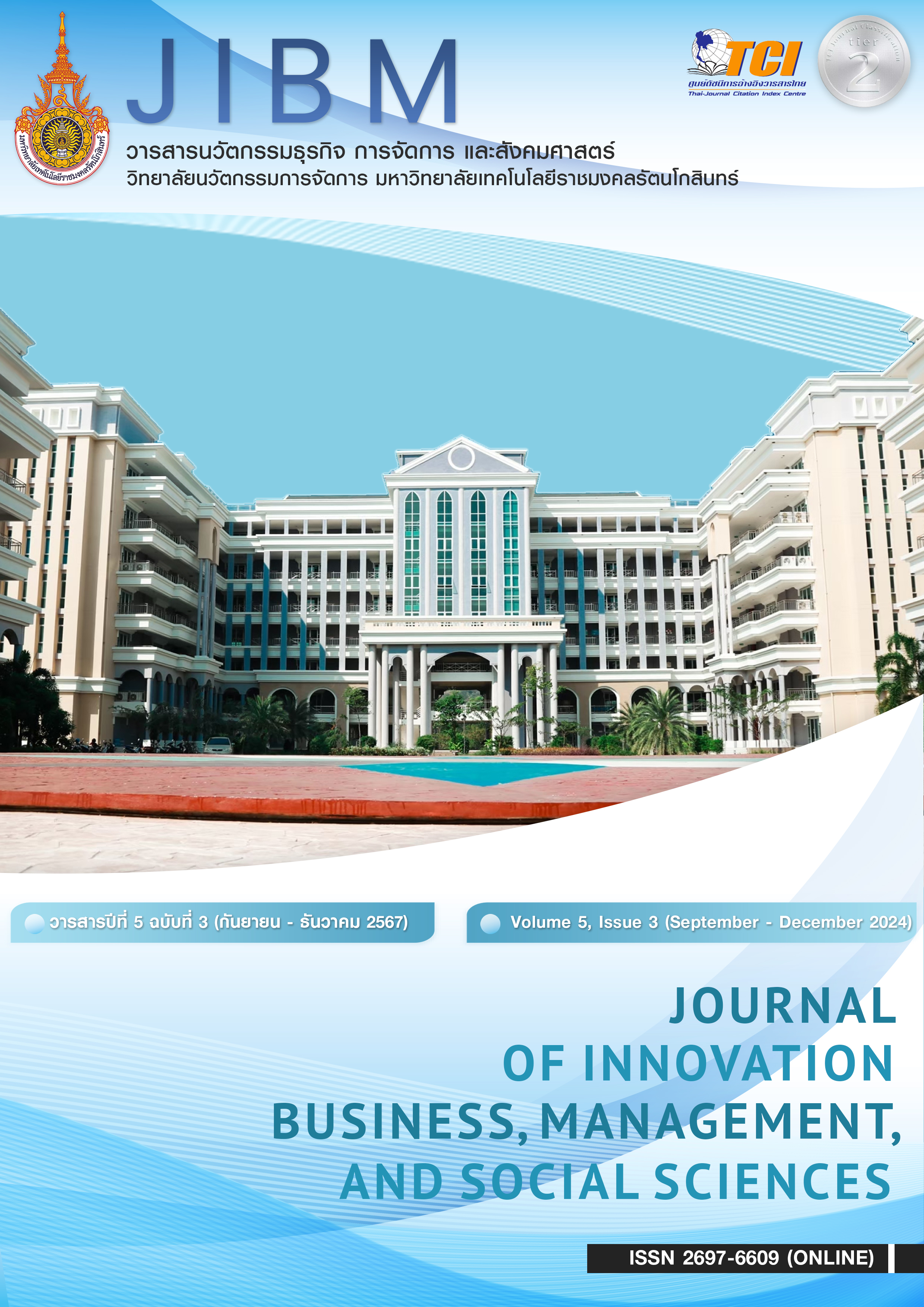- อธิปไตยทางดิจิทัลของอินเดีย: แนวทางสร้างสมดุลด้านความมั่นคง สิทธิพลเมือง และเศรษฐกิจสำหรับประเทศกำลังพัฒนา
คำสำคัญ:
อธิปไตยทางดิจิทัล , เศรษฐกิจดิจิทัล , ความมั่นคงปลอดภัยทางไซเบอร์ , ความเป็นอิสระทางเทคโนโลยีบทคัดย่อ
บทความนี้วิเคราะห์การแสวงหาอธิปไตยทางดิจิทัลของอินเดีย ซึ่งเป็นกรณีศึกษาสำหรับประเทศกำลังพัฒนาในการสร้างสมดุลระหว่างความมั่นคง สิทธิพลเมือง และอธิปไตยทางเศรษฐกิจ การศึกษาพบว่าแนวทางของอินเดียมีลักษณะเด่นสามประการ ได้แก่ ข้อกำหนดการจัดเก็บข้อมูลภายในประเทศเพื่อป้องกันการเข้าถึงจากต่างชาติโดยเฉพาะสหรัฐอเมริกา การพัฒนาโครงสร้างพื้นฐานดิจิทัลภายในประเทศอย่าง UPI และ Aadhaar และการปกป้องสินทรัพย์ดิจิทัลสำคัญจากการควบคุมของต่างชาติ อินเดียพยายามสร้างแนวทางที่เป็นทางเลือกที่สามระหว่างแนวทางเสรีนิยมของสหรัฐอเมริกาและแนวทางรัฐนำของจีน อย่างไรก็ตาม การดำเนินการเผชิญความท้าทายทั้งด้านการนำนโยบายไปปฏิบัติ การสร้างสมดุลทางเศรษฐกิจระหว่างผู้มีส่วนได้ส่วนเสีย และข้อกังวลเกี่ยวกับการละเมิดสิทธิพลเมือง จากกรณีศึกษานี้ บทความเสนอแนะว่าประเทศกำลังพัฒนาควรให้ความสำคัญกับการพัฒนากรอบกฎหมายที่ทันสมัยและยืดหยุ่น การสร้างความร่วมมือระดับภูมิภาคเพื่อเพิ่มอำนาจต่อรอง การพัฒนาโครงสร้างพื้นฐานดิจิทัลที่เป็นของตนเอง และการสร้างกลไกถ่วงดุลระหว่างการควบคุมของรัฐกับสิทธิพลเมือง ประสบการณ์ของอินเดียให้บทเรียนสำคัญในการสร้างอธิปไตยทางดิจิทัลที่ยั่งยืนและสอดคล้องกับหลักประชาธิปไตย
เอกสารอ้างอิง
Autolitano, S., & Pawlowska, A. (2021). Europe's quest for digital sovereignty: GAIA-X as a case study. Istituto Affari Internazionali.
Belli, L. (2023). Building good digital sovereignty through digital public infrastructures and digital commons in India and Brazil. Retrieved from: https://cyberbrics.info/building-good-digital-sovereignty-through-digital-public-infrastructures-and-digital-commons-in-india-and-brazil
Celeste, E. (2021). Digital Sovereignty in the EU: Challenges and Future Perspectives.
In F. Fabbrini, E. Celeste, & J. Quinn (Eds.), Data Protection Beyond Borders: Transatlantic Perspectives on Extraterritoriality and Sovereignty (pp. 29–82). Hart Publishing.
Donnelly, S., Ríos Camacho, E., & Heidebrecht, S. (2024). Digital sovereignty as control: The regulation of digital finance in the European Union. Journal of European Public Policy, 31(8), 2226-2249. DOI: 10.1080/1369118X.2024.2332624
Flonk, D., Jachtenfuchs, M., & Obendiek, A. (2024). Controlling internet content in the EU: towards digital sovereignty. Journal of European Public Policy, 31(8), 2316–2342. DOI: 10.1080/13501763.2024.2309179
Floridi, L (2020). The fight for digital sovereignty: What it is, and why it matters, especially for the EU. Philosophy & Technology, 33(3), 369-378. DOI: 10.1080/13510347. 2023.2197217
Gromova, E., & Brantes Ferreira, D. (2024). On the way to BRICS+ digital sovereignty: Opportunities and challenges of a new era. BRICS Law Journal, 11(3), 54-69. DOI: 10.21684/2412-2343-2024-11-3-54-69
Gupta, S., & Sony, R. A. L. (2021). Quest of data colonialism and cyber sovereignty: India's strategic position in cyberspace. Legal Issues in the Digital Age, 2, 68-81. DOI: 10.17323/2713-2749.2021.2.68.81
Heidebrecht, S. (2024). From market liberalism to public intervention: Digital sovereignty and changing European union digital single market governance. Journal of Common Market Studies, 62(1), 205-223. DOI: 10.1111/jcms.13488
Hoeffler, C., & Mérand, F. (2024). Digital sovereignty, economic ideas, and the struggle over the digital markets act: A political-cultural approach. Journal of European Public Policy, 31(8), 2121-2146. DOI: 10.1080/13501763.2023.2294144
Leese, M. (2024). Staying in control of technology: predictive policing, democracy, and digital sovereignty. Democratization, 31(5), 963-978. DOI: 10.1080/13510347.2023.2197217
Lehuedé, S. (2024). An alternative planetary future? Digital sovereignty frameworks and the decolonial option. Big Data & Society, 11(1). DOI: 10.1177/20539517231221778
Moerel, L., & Timmers, P. (2021). Reflections on digital sovereignty. EU Cyber Direct, Research in Focus series 2021. Retrieved from: https://ssrn.com/abstract=3772777
Monsees, L., & Lambach, D. (2022). Digital sovereignty, geopolitical imaginaries, and the reproduction of European identity. European Security, 31(3), 377-394. DOI: 10.1080/09662839.2022.2101883
Pohle, J., & Santaniello, M. (2024). From multistakeholderism to digital sovereignty: Toward a new discursive order in internet governance? Policy & Internet, 1-20. DOI:10.1002/poi3.426
Pohle, J., & Thiel, T. (2020). Digital sovereignty. Internet Policy Review, 9(4).), 1-4. DOI: 10.14763/2020.4.1532
Roberts, H., Cowls, J., Casolari, F., Morley, J., Taddeo, M., & Floridi, L. (2021). Safeguarding European values with digital sovereignty: An analysis of statements and policies. Internet Policy Review, 10(3). DOI: 10.14763/2021.3.1575
Sheikh, H. (2022). European Digital Sovereignty: A layered approach. Digital Society, 1, 25. DOI: 10.1007/s44206-022-00025-z
Vila Seoane, M. F. (2021). Data securitisation: The challenges of data sovereignty in India. Third World Quarterly, 42(8), 1733-1750. DOI: 10.1080/01436597.2021.1915122



